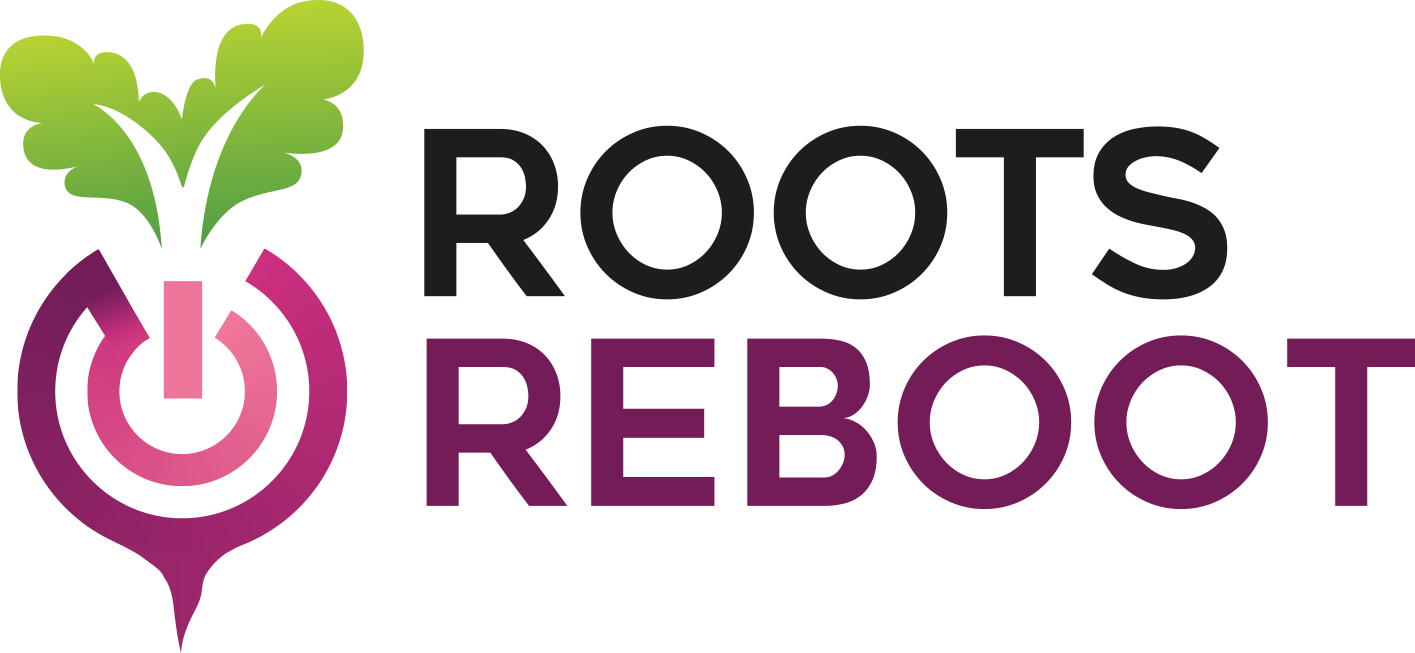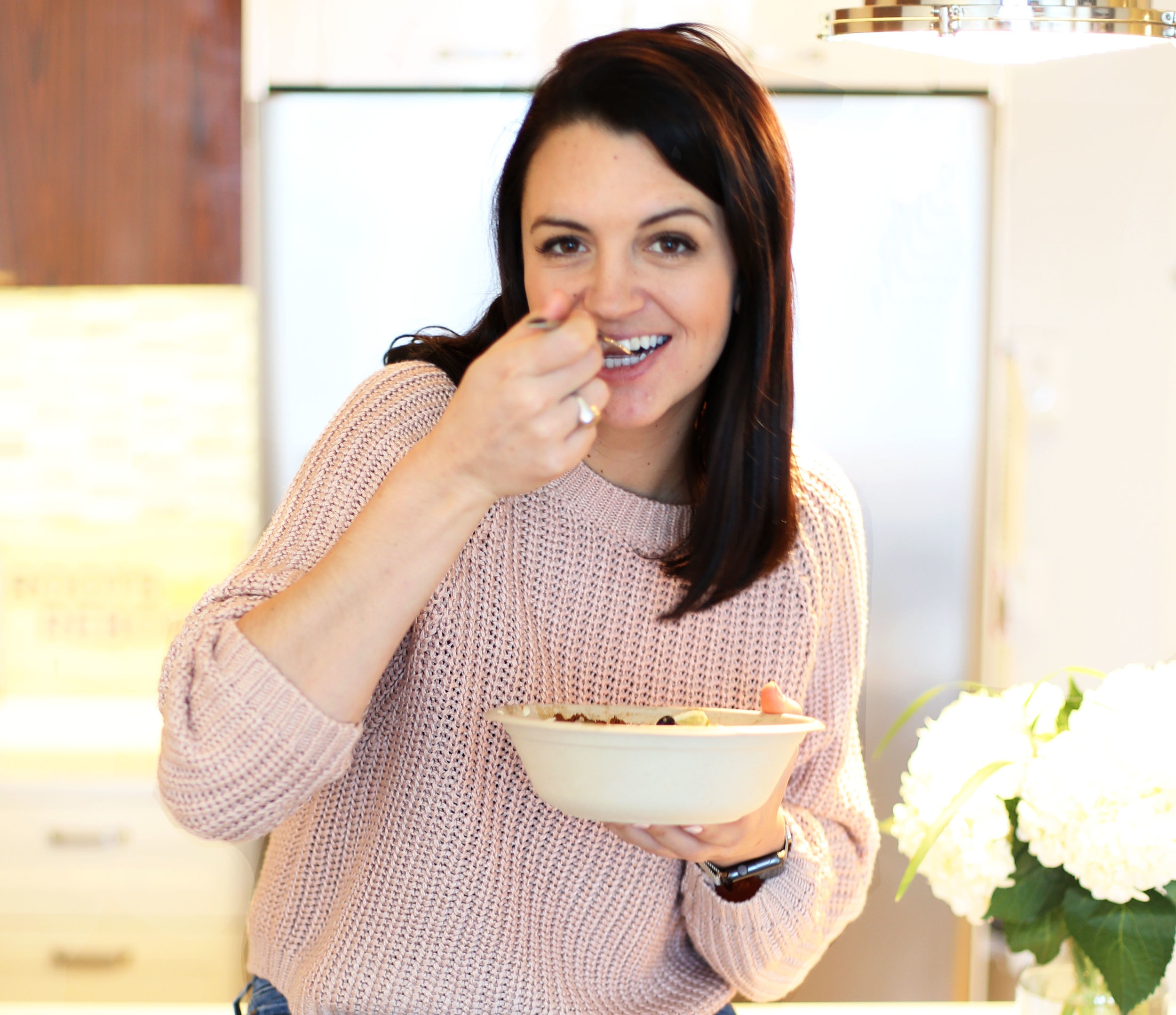get Lox & Loaded with this ultimate brunch spread
This bagel sandwich is EVERYTHING with our Radish Everything Bagel Cream Cheese spread! Not only is it dairy free + vegan cream cheese but its super silky and makes any toast or bagel go from 0-100. Packed with plant based healthy fats and protein + loaded up with all the healthy veggies toppings, this epic brunch spread is perfect for your next gathering!
Reboot with Salmon
Reasons to eat more Salmon for better health:
high in omega-3's
Fish and shellfish are especially important for providing omega-3 fatty acids, which are found in very few foods. A 3 oz portion of salmon is estimated to provide over 1,500 mg of omega-3s. Omega-3 fatty acids are absolutely essential for growth and development. The omega-3 fatty acid docosahexaenoic acid (DHA) is especially important, because it plays a role in brain and eye development.
heart healthy
A 2004 meta-analysis of 13 cohort studies found that eating fish once per week can reduce the risk of dying from coronary heart disease by 15%. The more fish that was consumed, the lower the risk. Adding an extra 5 oz of fish per week reduced the risk to 8%. Also, In one study of more than 40,000 male health professionals in the US, those who regularly ate 1 or more servings of fish per week had a 15% lower risk of heart disease. Therefore, it is recommended to eat at least one serving of fish per week to reduced risk of heart attacks and strokes, two of the world’s leading killers.
Improves mood and cogniative decline
Numerous controlled trials, including this one, have also found that omega-3 fatty acids are beneficial against depression, and significantly increase the effectiveness of antidepressant medications. This meta-analyses study shows fish and omega-3 fatty acids may also help with other mental disorders, such as bipolar disorder and interestingly, many observational studies have shown that people who eat more fish have slower rates of cognitive decline.
One of the only good Sources of dietary vitamin D
This important vitamin actually functions like a steroid hormone in the body, and a whopping 41.6% of the US population is deficient in it. Fish and fish products are the best dietary sources of vitamin D, by far. Fatty fish like salmon and herring contain the highest amounts according to this study. A single 4 ounce (113 gram) serving of cooked salmon contains around 100% of the recommended intake of vitamin D. Some fish oils, such as cod liver oil, are also very high in vitamin D, providing more than 200% of the recommended intake in a single tablespoon.
Ask the RD: What type of Salmon should I buy?
We like it wild, and at least once or twice a week, salmon that is! We feel it is absolutely worth investing in high quality, wild or local seafood over farmed or imported seafood. Although both farm and wild caught salmon offer omega-3 fatty acids, eating large amounts of either type of fish to get their full benefits could expose you to cancer-causing chemicals. These chemicals come from the potentially polluted water fish swim in. That’s why your omega-3 sources need to be broad, with salmon being only one piece of the puzzle. However, one study does conclude: “The benefit-risk ratio for carcinogens and non-carcinogens is significantly greater for wild salmon than for farmed salmon.”
4 reasons why WILD SALMON > FARMED:
- 46% fewer calories and 3 times less the amount of saturated fats
- Higher in calcium, iron, potassium, zinc, and vitamin D
- Higher anti-inflammatory omega-3 (EPA and DHA) fats + lower in omega-6 fats pro-inflammatory fats
- Overall lower in harmful industrial pollutants such as: PCBs and, PBDEs
The bottom line:
Both wild and farmed salmon are healthy choices in moderation and both come with risks if eaten in large quantities. However, when eaten in moderation, wild salmon is safer and more nutrient packed!
ask the RD: What pollutants in salmon should
i be concerned about?
PCBs and methylmercury are of particular concern because they can build up in fish tissue to levels that are many times greater than levels in the surrounding water. Fish may also contain toxins that are not neutralized by cooking so it is important to pick high-quality, safe sources!
Farmed salmon, on average has 16 times the dioxin-like PCBs found in wild salmon, 4 times the levels in beef, and 3.4 times the dioxin-like PCBs found in other seafood. US retail salmon was recently studied, and organically farmed salmon with skin was found to be the most contaminated with PBDEs. PBDEs or Polybrominated diphenyl ethers, are organobromine compounds that are used as flame retardant. In this study, only grilled chicken beats out grilled salmon for certain carcinogenic contamination. Also, feed additives given to farmed salmon to dye their flesh may be linked to a condition in consumers called gold dust retinopathy, when canthaxanthine deposits in the retina.
PCBs risks: The Environmental Protection Agency (EPA) has determined long-term exposure to PCBs may increase the risk of cancer. Individuals exposed to large amounts of PCBs may develop skin conditions such as acne or rashes.
How does PCB or mercury exposure affect children? Infants and children, because their nervous systems are still developing, are particularly sensitive to the effects of PCBs and mercury. Pregnant women, woman planning to become pregnant, nursing mothers, infants, and young children should avoid eating PCB and mercury contaminated fish from the advisory areas.
how can I reduce my exposure to pollutants in fish?
Reduce your exposure to PCBs and other contaminants that collect in the fatty parts of fish by up to 50% by preparing and cooking fish properly:
- Purchase from a reputable sources - wild over farmed. For a current list of the department of health fish consumption advisories, please visit the your statewide Department of Health’s Division of Environmental Epidemiology Fish Consumption Webpage. For the Virginia Department of health webpage click here
- Remove the fish skin and visible fat before cooking
- Avoid pan frying in butter or animal fat because these methods hold fat juices and frying seals contaminants into the fatty tissue.
- Broil, or bake the fish
- Let the fat drip off during cooking and don't use the fat for gravy or sauces.
RD pro-tip: Eat smaller, younger fish. Younger fish are less likely to contain harmful levels of contaminants than older. Also, smaller fish that are low on the food chain, such as sardines, salmon and trout, have much less pollutants!
Toasted Bagels with Radish Everything Bagel
Cream Cheese + Lox
Recipe By: Dietitian Taylor Johnson, RD, LDN
Recipe Type: Breakfast, brunch or lunch
Serves: 4 bagel sandwiches
Dietary restrictions: Dairy free
This smooth, silky cream cheese spread has a little secret: its dairy free, vegan cream cheese made from ALMONDS! It's the prefect brunch spread for your next gathering!
RD Tip: You can make the cream cheese spread ahead of time and keep it an airtight container in the refrigerator until it's time to serve on your brunch spread!
ingredients
Everything Seasoning
- 2 tbsp. chopped dehydrated onion
- 1 tbsp. toasted sesame seeds
- 2 tsp. poppy seeds
- 1 tsp. granulated garlic
- + coarse pink sea salt to taste
Toasted Bagels + toppings
- 4 whole wheat bagels, halved, some of the inside bread scooped out
- 1, 8 oz, package Almond milk cream cheese, at room temperature ( I use Kite Hill cheese from Whole Foods)
- 3 radishes, coarsely grated or cut into matchsticks
- 3 scallions, white and light-green parts only, finely chopped
- 3 tbsp. fresh dill, chopped
- 1 lb. thinly sliced wild caught lox
- 4 slices beefsteak tomato
- 4 slices red onion
- 2 ripe avocados, sliced
- optional other toppings: cucumber, capers
Directions
- For the seasoning, in a small bowl, mix all the ingredients together in a small bowl and set aside.
- Preheat the oven to low broil. Place the bagels on a rimmed baking sheet and broil until toasted, 3-5 minutes per side.
- In a medium bowl, mix the cream cheese, radishes, scallions, dill and half the seasoning together until smooth and creamy.
- Slather the bagels with the cream cheese spread. Assemble bagel sandwiches with lox, tomato, red onion, avocado, sprinkle of the remaining everything seasoning and add other desired toppings! Reboot and Enjoy!
P.S. NEED TO RECHARGE + REFOCUS + RESET YOUR HEALTH?
Reboot your health with a personal Roots Reboot Dietitian, your source for nutrition answers! Work one-on-one with a Roots Reboot Dietitian and start feeling amazing by achieving the whole-living lifestyle you've always desired! Creating your own personalized nutrition plan and seeing lasting results has never been easier. Skip the waiting room and speak to a Dietitian 24/7, with daily support anytime, anywhere it is most convenient for you!
LEARN MORE HERE!
Based out of Northern Virginia, Washington D.C. and Houston, Texas but our Dietitians provide services NATIONWIDE via tele-nutrition!







































